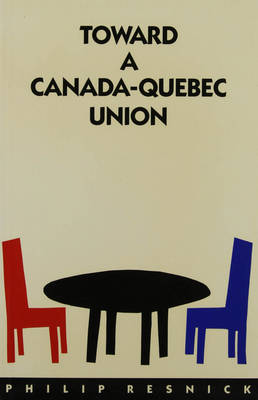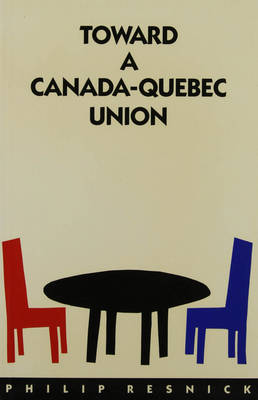
- Retrait gratuit dans votre magasin Club
- 7.000.000 titres dans notre catalogue
- Payer en toute sécurité
- Toujours un magasin près de chez vous
- Retrait gratuit dans votre magasin Club
- 7.000.0000 titres dans notre catalogue
- Payer en toute sécurité
- Toujours un magasin près de chez vous
Description
Resnick begins Toward a Canada-Quebec Union with an exploration of the conflicting notions of federalism -- and of Canada itself -- that contributed to the demise of the Meech Lake Accord and to the Conservative government's agenda for constitutional reform. He presents an enlightened interpretation of English Canada and Quebec as distinct sociological nations, reveals the deficiencies inherent in official bilingualism and biculturalism, and rejects both the existing form of federalism and the much-touted sovereignty-association as viable constitutional alternatives for the future. The global trend, Resnick observes, is away from the centralized nation-state, and he shows the dangers of sovereignty for Quebec to be very real, both economically and -- given the power of the American colossus -- culturally. Resnick proposes the establishment of separate parliaments and governments in English Canada and Quebec, to be linked by a new institutional arrangement that he calls the Canada- Quebec Union. Reflecting passionately on what Canada and Canadians have suffered recently, he calls for a more open and democratic process of constitutional change that would entail elected constitutional assemblies. He deals also with the two vitally important questions of minority rights and the threat, for all of Canada, of Americanization. Toward a Canada-Quebec Union will provoke strong responses, whether ardently supportive or vehemently critical. There can, however, be no question that Resnick's constructive approach to Canada's constitutional crisis -- seeking a viable alternative to the status quo -- is the necessary first step toward a solution.
Spécifications
Parties prenantes
- Auteur(s) :
- Editeur:
Contenu
- Nombre de pages :
- 136
- Langue:
- Anglais
Caractéristiques
- EAN:
- 9780773508651
- Date de parution :
- 01-04-91
- Format:
- Livre broché
- Format numérique:
- Trade paperback (VS)
- Dimensions :
- 141 mm x 215 mm
- Poids :
- 172 g

Les avis
Nous publions uniquement les avis qui respectent les conditions requises. Consultez nos conditions pour les avis.






